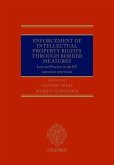This collection offers an overview of the issues involved concerning the interface between human rights and intellectual property rights (IPRs). It makes clear that two schools of thought have developed. The first school maintains that human rights and IPRs are in fundamental conflict. Strong protection of IP is incompatible with human rights obligations. Thus, for resolving the conflict between the two, it is suggested that human rights should always prevail over IPRs. Whereas the second school of thought asserts that human rights and IPRs pursue the same aim; that is to define the appropriate scope of private monopoly power to create incentives for authors and inventors, while ensuring that the public has adequate access to the fruits of their efforts. Accordingly, they argue, human rights and IP are compatible. However, what is needed is to strike a balance between the provision of incentives to innovate and public access to products of that innovation. This collection explores this balance and the extent to which human rights standards can influence the interpretation of IP norms, for example in defining the scope of IPRs. The discussion on the relationship of human rights and IPRs is an ongoing one; this volume makes a valuable contribution to the debate and will further stimulate the interest to explore and address these complex and challenging issues. This is the second volume in The Raoul Wallenberg Institute of Human Rights and Humanitarian Law 'New Authors' series, which contains the best theses from the human rights masters programmes in Lund and Venice.
Hinweis: Dieser Artikel kann nur an eine deutsche Lieferadresse ausgeliefert werden.
Hinweis: Dieser Artikel kann nur an eine deutsche Lieferadresse ausgeliefert werden.







